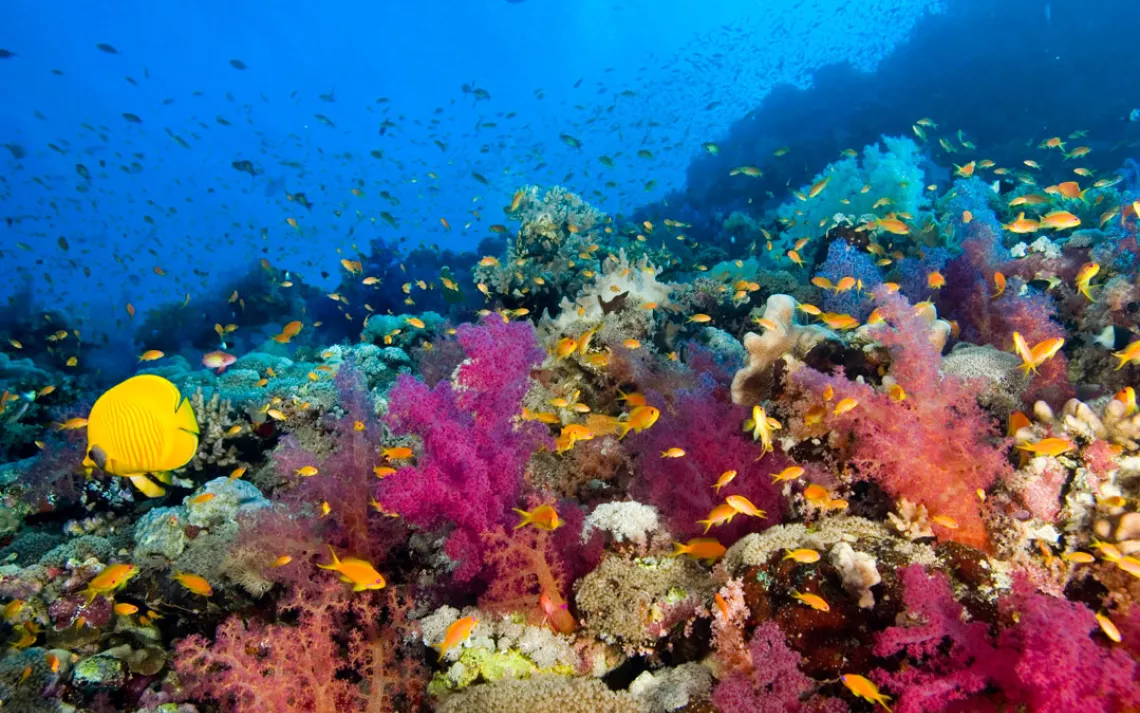A Call to Protect the Oceans
An international coalition votes to protect almost a third of the world’s marine areas

Fish swim over a coral reef in the Red Sea. | Photo by Strmko/iStock
A little more than a week after President Barack Obama created the world’s largest protected marine area off Hawaii, a majority of governments and NGOs from 190 nations at the World Conservation Congress voted today to protect a third of the world’s oceans by 2030.
"If we are to make genuine inroads into safeguarding the oceans, we need to protect upwards of 30 percent of the sea," says marine biologist Callum Roberts of York University. "It is hard to believe we ever thought nature could manage on less."
Less than 4 percent of the ocean worldwide is currently protected, compared to about 15 percent of land. “I’d like to protect the entire ocean, but 30 percent is a really good start,” scientist Sylvia Earle says. “The current 10 percent goal is nowhere near enough.”
In 2010, the United Nations Convention on Biological Diversity set a goal to protect 10 percent of the world’s oceans by 2020. In a study published this past March in Conservation Letters, scientists led by Roberts found that at least 30 percent of the oceans need to be set aside to protect biodiversity and maximize fisheries yield.
Earle’s conservation group, Mission Blue, timed a big announcement of its own to the call for more ocean protection. Mission Blue partnered with the International Union for Conservation of Nature to announce today 14 new Hope Spots—marine areas they say are critical to the health of the ocean and so deserve special protection. Mission Blue has now designated a total of 76 Hope Spots, including Hatteras off North Carolina and Malpelo off the coast of Colombia.
Presidents from Ecuador, Colombia, and Costa Rica met in the Galapagos and announced bigger water reserves off their borders. The presidents’ actions expanded protections for three UNESCO World Heritage Sites: Cocos, Malpelo, and the Galapagos. Roughly 83,600 square miles of marine reserves now exist off the three countries, according to National Geographic.
While some countries, including Japan, tried to block the motion at the World Conservation Congress, the call for more ocean protection was met with a wide range of international support. “We are protecting our ocean so that our children can benefit the same as countless of generations before them,” said Tommy Remengesau Jr., president of Palau. “The ocean is the foundation of our livelihoods and our culture. The global community must do more, and do it urgently, as we face ever-growing threats to our oceans—overfishing, pollution, and climate.”
 The Magazine of The Sierra Club
The Magazine of The Sierra Club